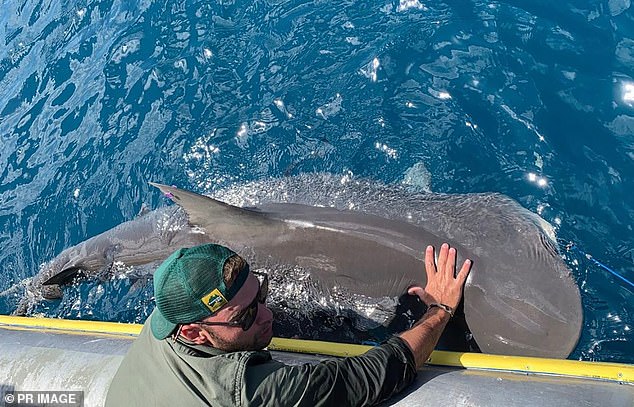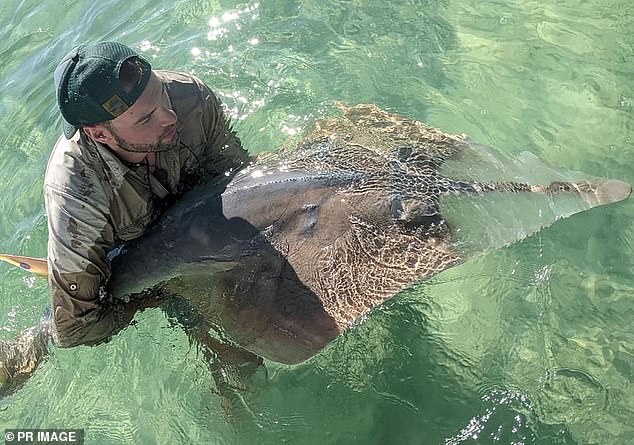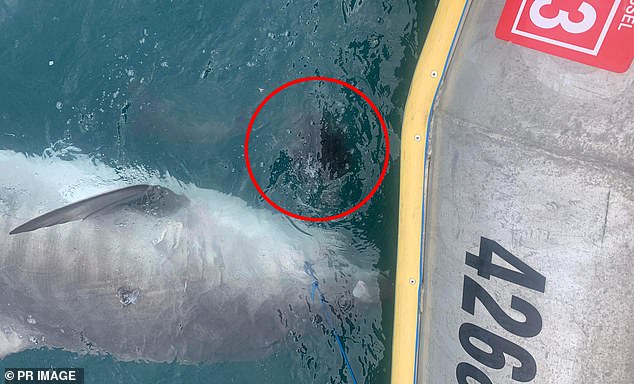It was just another day for a group of scientists, until a tiger shark vomited up an echidna.
The James Cook University research team had seen some images tagging marine life off the coast of Queensland, especially tiger sharks.
They have been known to eat anything: seabirds, tires, license plates, and even small television screens.
‘They are just a scavenger. “I’ve seen videos of them eating a rock for no reason,” said marine biologist Nicolas Lubitz.
A tiger shark dumped an intact echidna (pictured, centre) in what marine scientists described as a “world-first discovery”.
However, Dr Lubitz’s JCU team were still stunned by what a three-metre tiger shark regurgitated while wrangling it near Orpheus Island, off the north Queensland coast.
“It was a completely intact echidna, with all its spines and legs,” Dr. Lubitz said, describing it as “a world discovery.”
“It was a decent-sized tiger shark, but it wasn’t huge. It’s very rare for them to vomit their food but sometimes when they get stressed they can.
“In this case, I think the echidna must have felt a little funny in its throat.”
It quickly put a twist on what had been a normal day of tagging marine life.
‘We were quite surprised by what we saw. “We really didn’t know what was going on,” Dr. Lubitz said.
“When he spit it out, I looked at him and said ‘what the hell is that?'”
Dr. Lubitz believed that the unfortunate echidna may have been captured while trying to swim from one island to another in search of food or a mate.
The echidna was still whole when it was regurgitated, suggesting it was a recent death.
The tiger shark quickly recovered after clearing its throat and was fitted with an acoustic tracker before being released unharmed.
The May 2022 incident occurred during a four-year state-level and multi-agency investigative effort that is scheduled to release its data.

Marine biologist Dr Nicholas Lubitz (pictured) and his team at James Cook University were stunned by what the shark had regurgitated.

Dr. Lubitz and his team fitted the shark with an acoustic tracker before the creature was released unharmed into the water.
To date, the project has tagged more than 800 marine animals with 10-year trackers from the Gold Coast to the Torres Strait.
Researchers will be able to analyze the migration patterns of several species when full data downloads are available later this year.
He has already revealed new information.
“We’ve detected movements of species like shovelnose rays traveling from Townsville to the Sunshine Coast that people never thought were migratory,” Dr Lubitz said.
But it seems few discoveries will match the surprise of the echidna incident, although another sick tiger shark came close during their investigation.
“He vomited up a big chunk of fat and then a whole spine. I think the target was a baby dugong,” Dr. Lubitz said.


